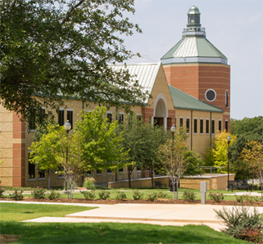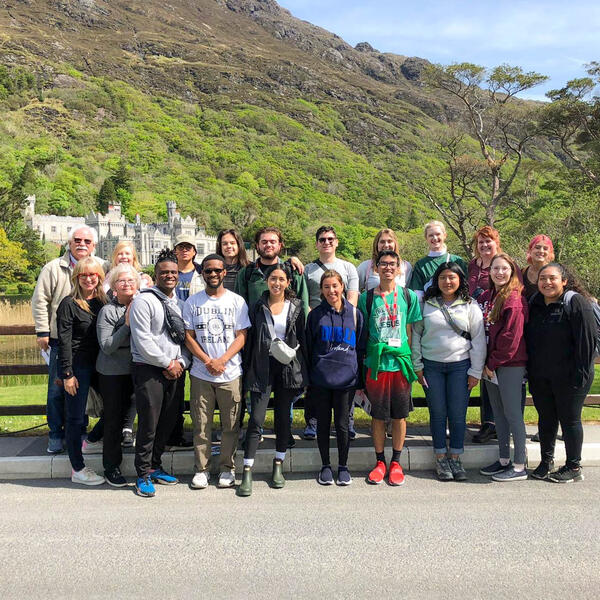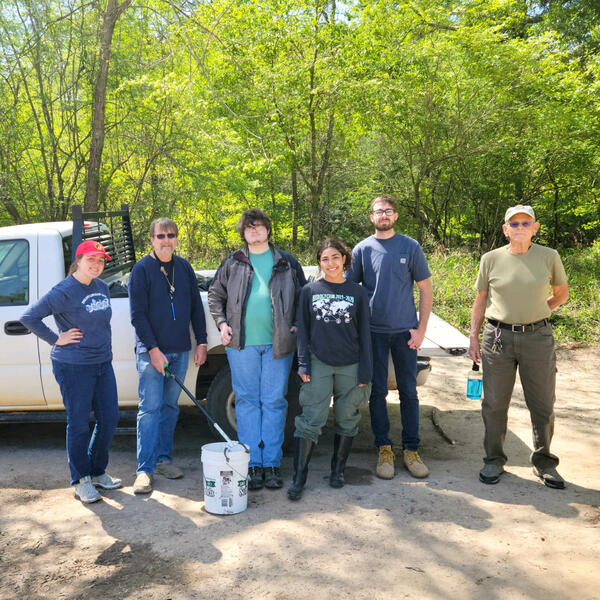The Connection Between Music and Science
The Connection Between Music and Science
One of the things that should be obvious to visitors on the Southwestern campus, especially this week, is that the University has an excellent music program. Less obvious this week is the fact that the University also has excellent offerings in biology and other sciences. What’s even more fascinating is that many of the students who excel in Scales Hall, where the sciences are featured, are likely to be found in the music practice rooms of the Mabee Center.
One such student is Sofia Tsatalbasidis, a senior biochemistry major who is also pre-med. She sings for school events, has recitals and choir performances, as well as church-related events.
“Music is what I do when I want to take a break from my hard classes,” she says. “Music keeps me from going insane. I believe that having the discipline to practice helps me to have the discipline I need to focus in my science studies.”
Tsatalbasidis sees the connection between science and music as fairly common, and Amy McHenry, PhD, associate professor of biological sciences agrees with her. Both McHenry and her husband, Dr. Peter McHenry, also an associate professor in biological sciences, participated in music as students. She sang with the university choir, played violin and in the string quartet.
“I think for me the appeal of music was similar to the appeal of science—both have creativity within structure,” says Amy McHenry. “People usually associate creativity with music, but it has a lot of mathematical structure as well. People usually think of structure and technicality in science, but science also requires a lot of creativity to connect ideas and use research tools effectively to answer questions.”
A 2015 article in Helix Magazine by Northwestern University states,
“There are a wealth of studies on the effects of musical training on cognitive and social skills. Many of them have found significant benefits, especially in areas such as spatio-temporal reasoning, language skills, self-esteem, and persistence. Some found increased grey matter, which is associated with increased skills, all over the brain as a result of musical training. Other areas, such as general academic performance and reading skills, are more hotly debated. But, everyone agrees that music requires lots of persistence and complex thinking.” (Nick Griffiths, “Musicians Make Better Scientists,” March 3, 2015)
Recent graduate Jae-Min Park, a pianist and singer/songwriter who led a praise team and was a member of the band Contagious Faith, says for him it is all about learning balance. "During my time at Southwestern, music was a way to maintain balance in my busy schedule but still allow me to bless other people with the gifts that God has given me. During my application process into medical school, the admissions committee asked me about my musical involvement in my church and my school. My leadership in my school’s various music programs showed that I was a candidate that had passions other than just science. I believe these opportunities gave me a better chance of being accepted into medical school. Now that I am in medical school at Loma Linda University, music is a way that I can relieve my stress and worship my Creator and Sustainer. I am so thankful for the opportunities SWAU gave me to use my talents to bless others and to teach me balance in my own life."
In any case, the musicians and the scientists seem to agree that the disciplines help each other out. It’s something that Southwestern students are likely to take advantage of for many years to come.

Sofia pictured with world-renowned composer Ēriks Ešenvalds after the A Night at the Meyerson concert last year. Ešenvalds wrote a commissioned piece for the concert.
Jae-Min, a 2017 graduate, is now a student at Loma Linda University.






